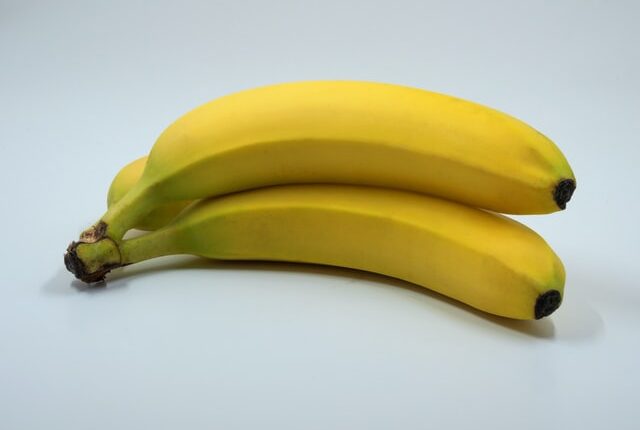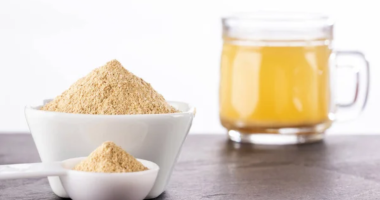15 high-carb foods in Nigeria – One of the best things about Nigeria is its food. There is such a variety of dishes to choose from, and each one is more delicious than the last. However, if you’re trying to watch your carb intake, you might be wondering which foods to avoid. Never fear! We’ve compiled a list of 15 high-carb foods in Nigeria that you can enjoy without guilt. From plantains to yams to rice and beans, there’s something for everyone on this list. So go ahead and indulge – your taste buds will thank you!
15 high-carb foods in Nigeria
Rice
Rice is a staple food in Nigeria and many other parts of the world. It is a grain that is usually cooked and eaten as a main dish.
There are many different types of rice, but the most common type of rice in Nigeria is white rice. White rice is a type of rice that has been milled to remove the bran and germ. This process makes the rice less nutritious but it also makes it easier to cook and eat.
Rice is a good source of carbohydrates and it is also a low-fat food. However, it is important to note that not all carbs are created equal. Refined carbs such as white rice can cause spikes in blood sugar levels which can be detrimental to health. It is therefore important to choose unrefined carbs such as brown rice or wild rice instead.
Beans
Beans are a popular food in Nigeria and are often eaten as a side dish or as part of a main meal. There are many different types of beans available in Nigeria, including black-eyed peas, cowpeas, and lima beans. Beans are a good source of protein and fiber, and they can be cooked in many different ways.
Plantain
Plantain is a type of starchy fruit that is common in Nigeria. It is usually cooked before eating and can be used in a variety of dishes.
Plantain is a good source of carbohydrates and fiber. It also contains vitamins A and C, as well as potassium and magnesium.
When choosing plantains, look for ones that are firm and bright yellow in color. Avoid those with brown spots or bruises.
To prepare plantains, wash them thoroughly under running water. Peel the skin off with a sharp knife or vegetable peeler. Cut the flesh into thin slices or chunks, depending on how you plan to use it.
Plantains can be fried, boiled, baked, or mashed. They are often used as a side dish or in stews and soups.
Bread
Bread is a common food in Nigeria and many other African countries. It is made from flour, water, and yeast. Bread is a good source of carbohydrates and can be eaten with other foods or by itself.
Bread is a common breakfast food in Nigeria. It is often served with tea or coffee. Bread can also be eaten with stews, soups, and other dishes.
Noodles
Noodles are a type of carbohydrate-rich food. While the exact amount of carbohydrates in noodles varies depending on the type of noodle and the flour used to make them, they generally contain a significant amount of carbs.
For example, 100 grams of cooked spaghetti noodles contains around 43 grams of carbohydrates. This means that noodles provide a substantial amount of energy and should be eaten in moderation if you’re trying to lose weight or manage diabetes.
If you’re looking for a lower-carbohydrate alternative to noodles, consider using zucchini noodles, also known as zoodles.
Zucchini is a type of squash that has a lower carb content than most other vegetables. One cup of cooked zucchini noodles contains around 6 grams of carbohydrates, making them a much better choice for those on a low-carb diet.
Cassava
Cassava is a root vegetable that is commonly used in Nigerian cuisine. It is a starchy tuber that is high in carbohydrates and calories. Cassava is a good source of dietary fiber and essential vitamins and minerals. It can be boiled, baked, fried, or roasted. Cassava is often used as a replacement for rice or potatoes.
Sweet potato
Sweet potato is a high-carb food that is popular in Nigeria. It is a starchy root vegetable that is rich in vitamins and minerals. Sweet potato is often cooked in stew or soup, and it can also be roasted or baked.
Yam
Yams are a type of starchy root vegetable that are popular in Nigeria. They have a high carbohydrate content, as well as being a good source of dietary fiber and vitamins. Yams can be cooked in many different ways, and are often used as a staple in Nigerian cuisine.
Maize/Corn
Maize is a staple food in Nigeria and is used to make many popular dishes such as amala (a yam-based dish), eba (gari), and ogi (pap). It is also a common ingredient in soups and stews. Maize is a good source of carbohydrates and provides the body with energy.
Groundnut
Groundnut is one of the 15 high-carb foods in Nigeria, a popular snack and is often eaten roasted or boiled. It is a good source of protein and fat, and can be a healthy snack when eaten in moderation. However, groundnut is also high in carbs and should be avoided if you are on a low-carb diet.
Millet
Millet is a highly nutritious grain that is popular in Nigeria. It is rich in vitamins and minerals, and has a high fiber content. Millet is also a good source of protein, and can be used to make a variety of dishes including porridge, bread, and snacks.
Sorghum
Sorghum is a grain that is used in many different foods in Nigeria, and it is high in carbs. One cup of cooked sorghum contains about 21 grams of carbohydrates, which is about one-third of the daily recommended amount for people on a standard 2,000-calorie diet. Sorghum is also a good source of protein and fiber, with four grams per cup. In Nigeria, Sorghum is usually eaten with stews or soups, and it can also be used to make porridge.
Breadfruit
Breadfruit is a starchy fruit that is indigenous to Nigeria. It is high in carbohydrates and is a staple food in many Nigerian households. Breadfruit is usually boiled or roasted and then eaten with a dipping sauce or stew. It can also be made into flour and used to make bread or other baked goods.
Cocoyam
Cocoyam is a tropical root vegetable that is very popular in Nigeria. It is usually cooked as a porridge or stew and is often served with beans and other vegetables. Cocoyam is a good source of carbohydrates and fiber, and it also contains some protein and vitamins.
Fruits
Fruits are a great source of carbohydrates. They are packed with natural sugars that can give you a quick boost of energy. However, some fruits are higher in carbohydrates than others. Here is a list of some high-carbohydrate fruits in Nigeria: –
- mangoes,
- bananas,
- grapes
- oranges, and
- pineapples.
These fruits are all rich in carbohydrates, and they can help you meet your daily carbohydrate needs.
Bananas, in particular, are a great source of dietary potassium, which is an important electrolyte for proper muscle function. They are also one of the highest in carbohydrates, with about 27g per medium-sized banana.
Oranges are citrus fruit that is high in Vitamin C. They also contain around 17g of carbohydrates per small orange.
Grapes are sweet and juicy fruit that come in many different colors. A cup of grapes contains around 26g of carbohydrates. -Pineapple: Pineapples are a tropical fruit that is often used in desserts and smoothies. One cup of pineapple chunks contains 22g of carbohydrates.
So, If you’re looking for a high-carbohydrate snack, then fruits are a great option. They’re easy to transport and can be eaten on the go. Just be sure to wash them thoroughly before eating to avoid any foodborne illnesses.
ALSO READ | High Carbohydrate Diet For Skin: Good Or Bad?








